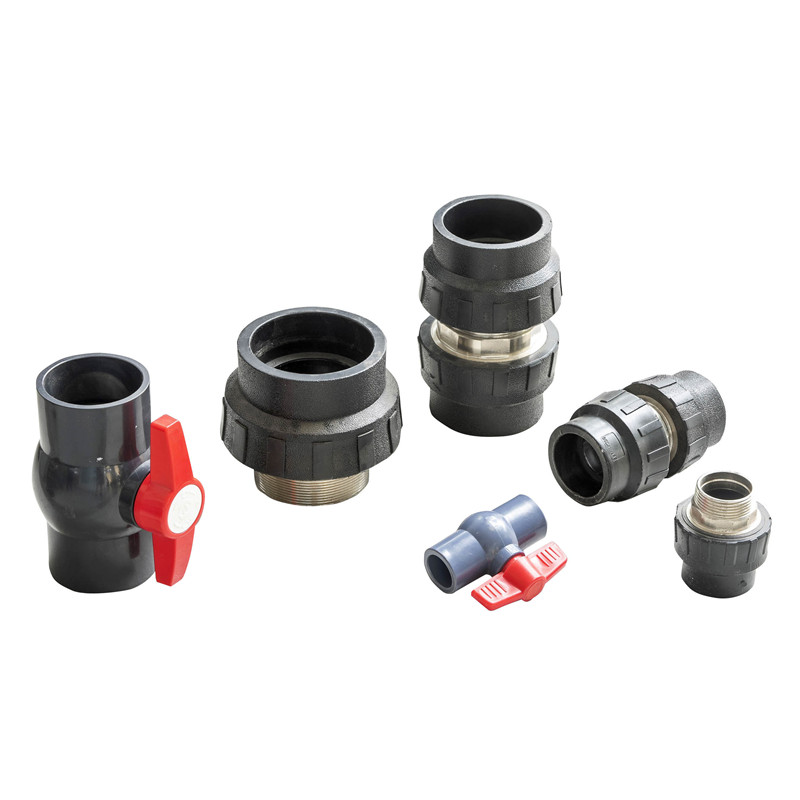Jul . 26, 2024 13:26 Back to list
Understanding the Benefits and Applications of PVC Electrical Conduit for Effective Wiring Solutions
The Versatility and Applications of PVC Electrical Pipes
Polyvinyl chloride (PVC) electrical pipes are a critical component in modern construction and electrical installation, offering numerous advantages that make them a preferred choice over traditional materials. Renowned for their durability, flexibility, and affordability, PVC electrical pipes are used in various applications, from residential wiring to large commercial projects.
One of the primary benefits of PVC electrical pipes is their resistance to corrosion and chemicals. Unlike metal pipes, PVC does not rust or corrode, which enhances the longevity of electrical installations. This characteristic is particularly important in areas with high humidity or exposure to chemicals. Furthermore, PVC electrical pipes are inherently non-conductive, which significantly reduces the risk of electrical shock in case of a fault. This safety feature makes them an ideal choice for residential applications where safety is a top priority.
The Versatility and Applications of PVC Electrical Pipes
Another significant advantage of PVC electrical pipes is their versatility. They can be used in various applications, including underground installations, above-ground conduits, and cable management systems. Whether it’s residential, commercial, or industrial settings, PVC pipes can be adapted to meet specific project requirements. For instance, in residential applications, they are often used for routing electrical wires through walls and ceilings. In contrast, in commercial or industrial settings, they can be utilized to protect and organize complex wiring systems.
pvc electrical pipe

The environmental impact of using PVC electrical pipes is also a subject of discussion. PVC is a recyclable material, and many manufacturers have initiated processes to recycle old pipes into new products. This effort not only helps reduce waste but also promotes sustainability in construction practices. However, it’s important for consumers and contractors to ensure they are sourcing PVC pipes from responsible manufacturers that adhere to environmental regulations.
Despite their many advantages, some concerns regarding PVC electrical pipes relate to their performance under extreme temperatures. While PVC can handle a wide range of temperatures, it may become brittle in extremely cold conditions or soften when exposed to high heat. Therefore, understanding the local climate and installation conditions is essential for ensuring the reliability of the electrical system.
When choosing PVC electrical pipes, it’s vital to consider the different grades available in the market. Schedule 40 PVC is often used for most electrical installations due to its strength and durability. However, for more demanding applications, such as those requiring more robust imperviousness, Schedule 80 PVC may be necessary.
In conclusion, PVC electrical pipes are a valuable resource in the construction and electrical installation industries. Their combination of durability, safety, ease of installation, and cost-effectiveness makes them a popular choice among contractors and homeowners alike. As technology progresses, the continued innovation in PVC manufacturing and recycling will likely expand its applications and further solidify its place in modern infrastructure. Whether for simple home wiring or complex commercial systems, PVC electrical pipes provide a reliable and efficient solution for various electrical needs.
-
High-Quality PPR Pipes and Fittings Durable ERA PPR & PVC PPR Solutions
NewsJul.08,2025
-
Black HDPE Cutting Board - Durable, Non-Porous & Food Safe HDPE Plastic Cutting Board
NewsJul.08,2025
-
High-Quality CPVC Panel Durable HDPE & PVC Panels Supplier
NewsJul.08,2025
-
Double PE Welding Rod Supplier - High Strength, Durable & Versatile Welding Solutions
NewsJul.07,2025
-
High-Quality PVC-O Pipe Supplier Durable 75mm PVC Pipe & Connections Leading PVC Pipe Company
NewsJul.07,2025
-
HDPE Drainage Pipe Supplier – Durable & Corrosion-Resistant Solutions
NewsJul.06,2025

